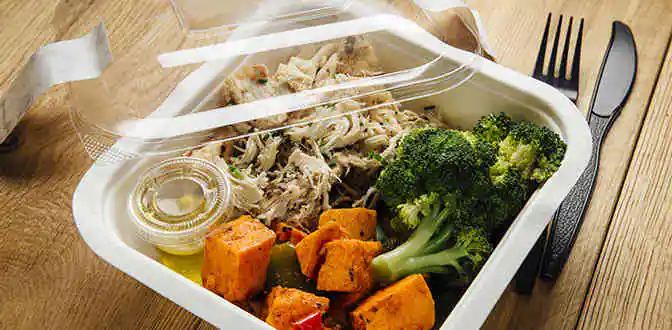For a long time, fat was the enemy of a healthy diet. Then salt emerged as the big bad wolf in the wellness world. Now, healthcare practitioners have pinpointed sugar as the main villain when it comes to good health.
In reality, salt, sugar and fat are macro and micronutrients that are all essential for our bodies to function properly. Vilifying and outlawing one or the other in the name of good health can be just as bad as consuming too much.
The problem is, as processed, packaged foods become a more central part of our everyday diets, we are consuming way too much salt, sugar and fat, all in very refined forms.
A good example of how this stuff can affect us is sugar. The sweet stuff is the most recent macro on the healthy hit list, and for good reason. While small amounts of natural sugars are generally fine, consuming sugar activates the reward pathways in our brain, which triggers the release of feel-good hormones like dopamine.
Too much of this stimulation actually leads to intense cravings and increased sugar tolerance, similar to a drug addiction. Too much sugar can also impair mental functions, lead to brain fog, and even exacerbate depression and anxiety.
The effect that sugar has on our brains has been compard to cocaine, and a 2012 Nature article called it a toxic substance in need of tougher regulation.
This kind of hysteria has been a boon for sugar substitute vendors. And while sugar still dominates the sweetener market, these vendors are putting in a herculean effort to capitalize on public mistrust of sugar. Awareness campaigns on the long- and short-term effects of sugar consumption, as well as rising rates of diabetes worldwide are helping the global sugar substitutes market grow at a cumulative average growth rate of 4.45% from 2014-2019. The market is expected to reach a value of $14.36 billion by 2019, or just over 37 billion pounds of sugar substitutes.
Sugar subs provide major cost-cutting advantage for industry users
But all this lobbying against sugar isn’t solely in the name of consumer health. Sugar substitutes work in the best interest of manufacturers.
Reducing production costs is a major concern for every player in the industry since lower costs can help manufacturers set a competitive price for their products, and draw in more customers.
Sugar is one of the major raw materials used in the food and beverage industry, but it generally costs more than sugar substitutes. This is because one unit of high-intensity sweetener (HIS) or high-fructose sweetener (HFS) has a higher sweetening power than an equivalent unit of sugar.
Global sugar substitutes market by product category by revenue 2014 and 2019
For example, aspartame is approximately 200 times sweeter than sugar, and saccharin is 300-500 times sweeter. This means that sugar substitutes can be used in lower quantities to achieve equivalent sweetness, which can help reduce production costs.
And swapping out the real deal for substitutes isn’t exactly a new concept. Coca-Cola and PepsiCo have already started using high-intensity sweeteners like stevia to reduce the raw materials costs of their products.
Following their lead, more and more industry giants are expected to turn to sugar substitutes over the projected period, which will help the market continue to grow steadily over the next four years.




